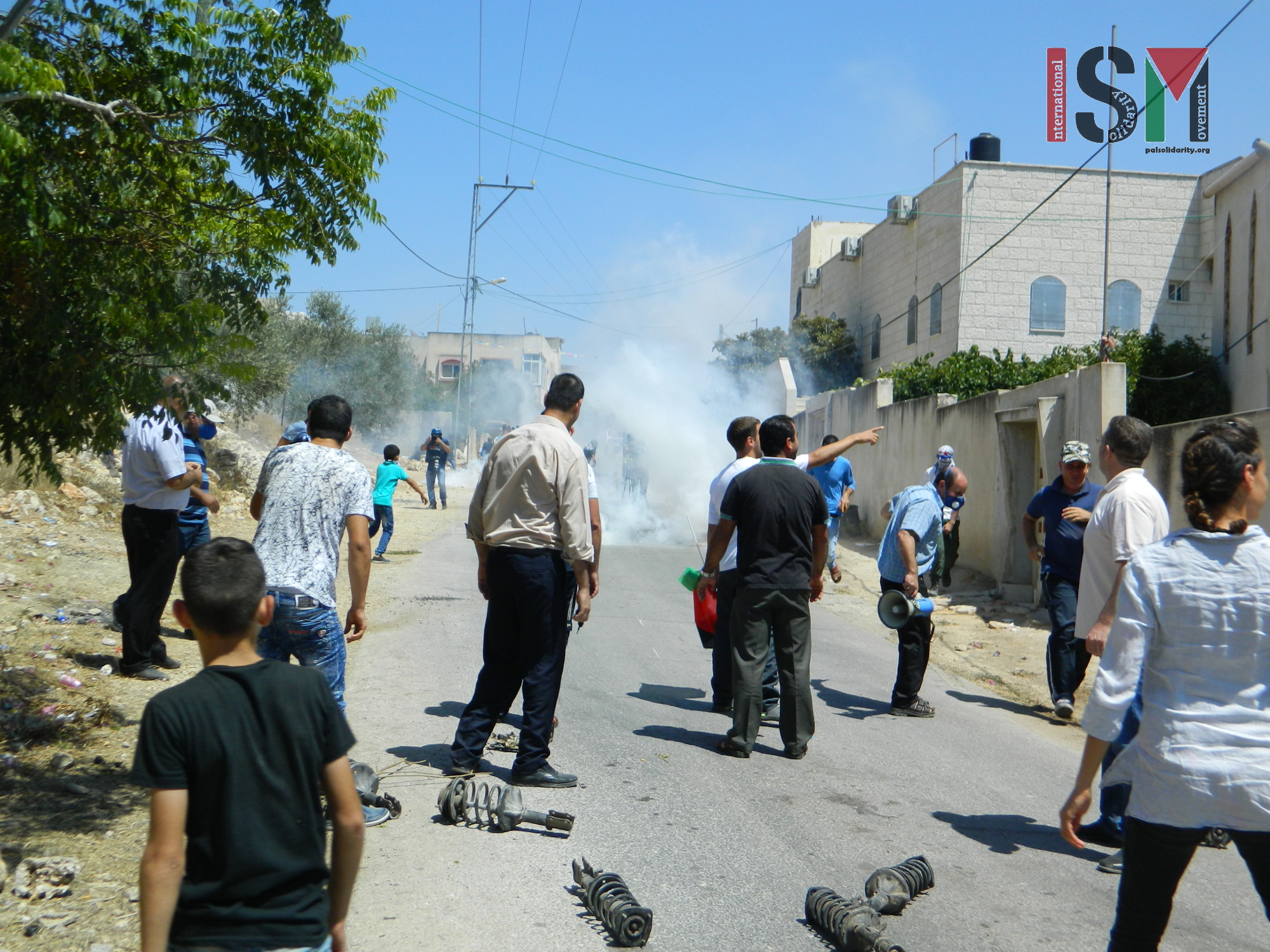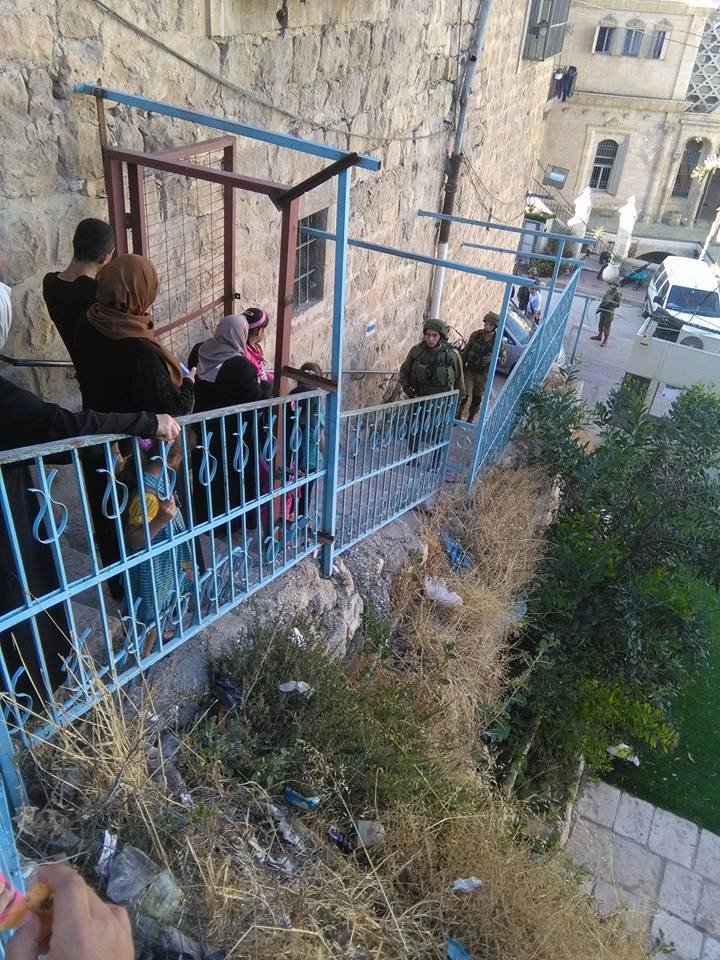Tag: Apartheid Wall
-
Kafr Qaddum demonstration met with tear gas
16th July 2016 | International Solidarity Movement, al-Khalil team | Kafr Qaddum, occupied Palestine On the 15th of July in the afternoon, the people of Kafr Kaddum took part in a demonstration against the Israeli Army’s continuing theft of their road. The soldiers checked cars going in and out of the village, and stationed snipers…
-
Two injured with live ammunition as Kafr Qaddum celebrates five years of demonstrations
1st July 2016 | IWPS | Kafr Qaddum, occupied Palestine The 1st July 2016, the last Friday in Ramadan, marked the fifth anniversary of Kafr Qaddum’s demonstrations. The Israeli military were present in the village and firing rubber coated steel bullets prior to the start of the demonstration. The soldiers continued to use full force…
-
Youth Against Apartheid activities against Israeli apartheid occupation of Hebron
11th June 2016 | Youth Against Apartheid | Hebron, occupied Palestine On 8th June, Hebron Youth Against Apartheid organised an activity to erase the racist Zionist occupation slogans on slaps of concrete walls and the military checkpoints within mainly the Tel Rumeida and Shuhada Street area. The slogans were replaced with slogans calling for freedom,…



